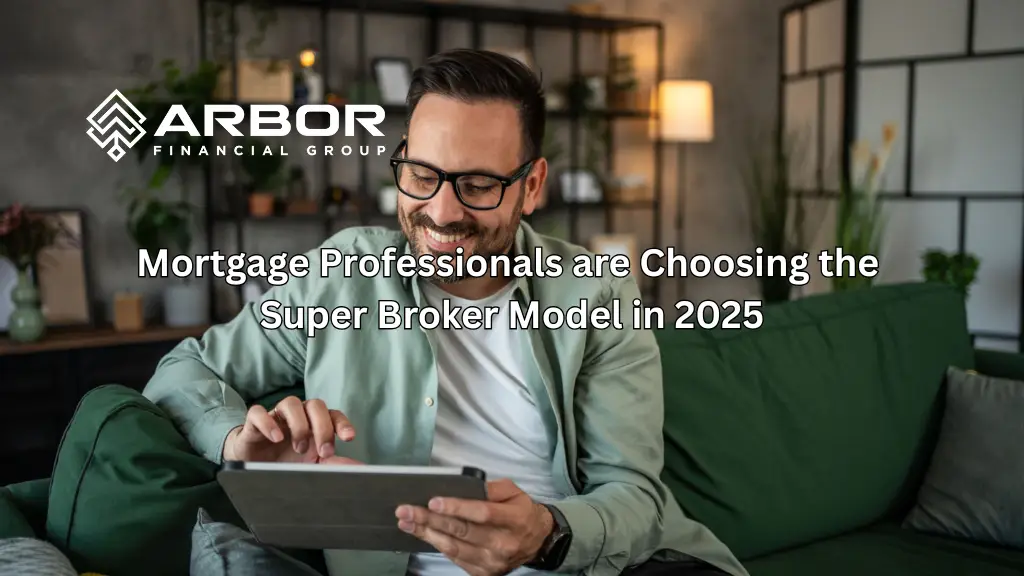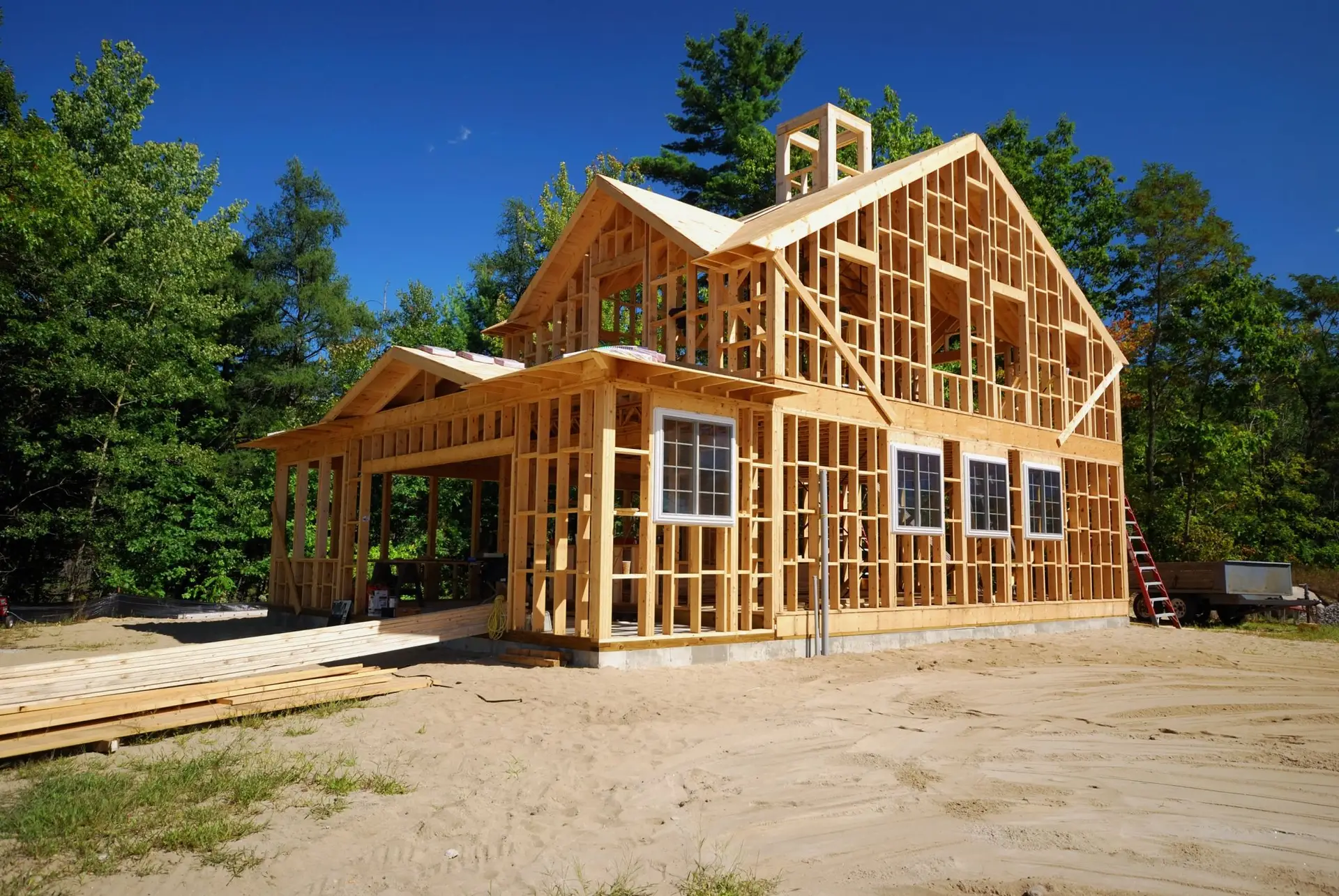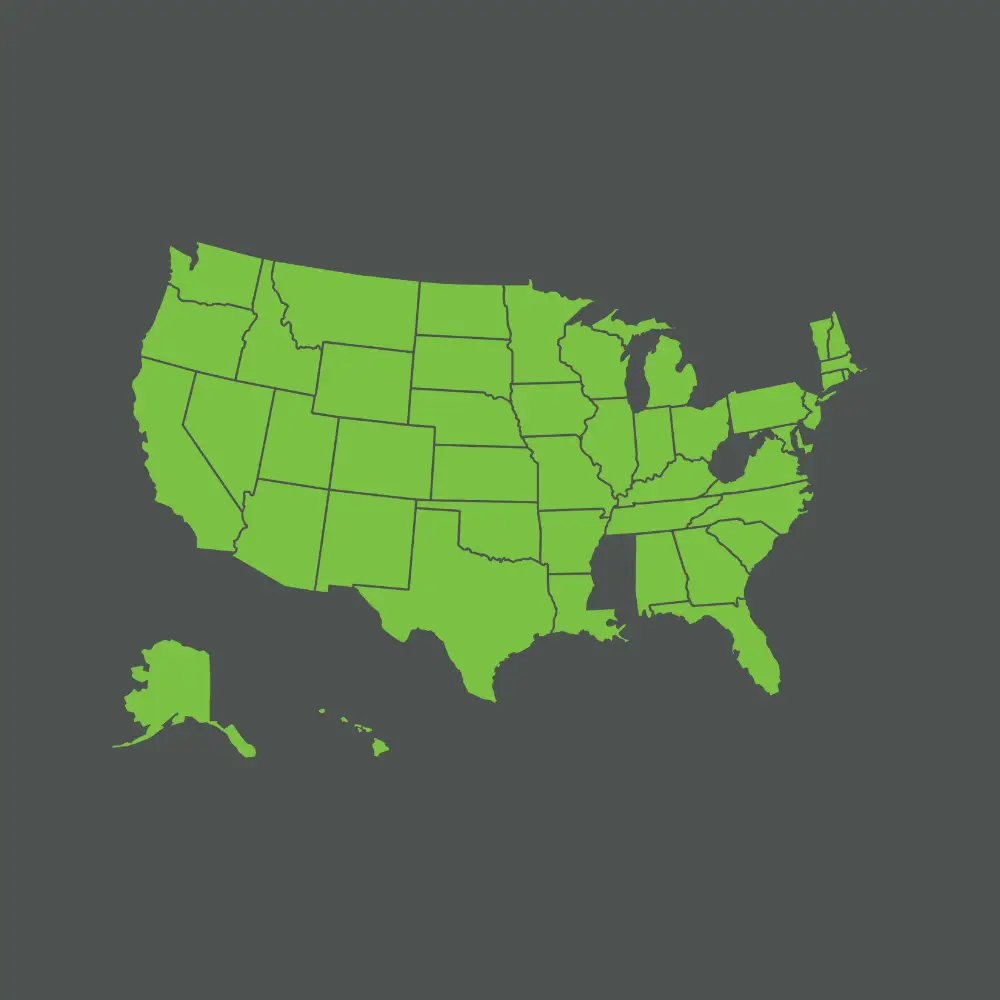
Connect with ARBOR Financial Group and our network of 400+ Mortgage Loan Originators serving 45 states. We make it easy to find the right home loan with competitive rates, fast approvals, and expert guidance from start to finish.
Call Today! 866-521-6488
Hundreds of verified five star reviews reflect our commitment to clear guidance, competitive rates, and smooth closings.
Trustindex verifies that the original source of the review is Google. This will be my third time working with Josh and Arbor. Can't express my satisfaction and trust enough. These folks are friendly, professional, and patient and they walk you through the process and give you great information and confidence. Again, can't recommend enough.
Owner's reply
Thank you, Don, for the 5 star review and for trusting Josh and the Arbor team again. Working with you for a third time truly means a lot. We’re glad the process felt clear, supportive, and informative from start to finish. We appreciate the recommendation and we’re always here whenever you need us.Trustindex verifies that the original source of the review is Google. Chad and Arbor Financial were so much more than helpful through the whole mortgage loan process. Chad has been an excellent guide, problem- solver, and communicator. I will recommend him to anyone looking for a hassle-free experience. Thank you so much!
Owner's reply
Thank you, Chris, for the great review. We’re thrilled to hear Chad provided such a smooth and supportive experience throughout your mortgage process. Being a clear communicator and problem solver is exactly what we strive for, and we truly appreciate your recommendation. Thank you for trusting Arbor Financial Group. We’re always here if you need anything in the future.Trustindex verifies that the original source of the review is Google. Great to work with, helpful with my refinance!
Owner's reply
Thank you, Liz, for the 5 star review. We’re glad we could help with your refinance and make the process a positive experience. We appreciate you choosing Arbor Financial Group and are always here if you need anything moving forward.Trustindex verifies that the original source of the review is Google. Outstanding experience from start to finish. Mar Bui and his team (which includes Albert Ngo and Uyen Bui) went above and beyond to ensure that my real estate loan needs were addressed in a timely, professional and effective manner. I highly recommend Marc and his team for any real estate loan financing needs you may have. Thank you so very much, Marc, Albert and Uyen!
Owner's reply
Thank you, Debbie, for sharing your experience. We’re thrilled to hear that Marc, Albert, and Uyen provided such outstanding support from start to finish. Delivering timely, professional, and effective service is exactly what we aim for, and we truly appreciate your recommendation. Thank you for trusting Arbor Financial Group with your real estate financing. We’re always here if you need anything in the future.Trustindex verifies that the original source of the review is Google. Dylan and his team at ARBOR are top of the line professionals. We have worked with the multiple times now and we couldn’t recommend using them as a mortgage broker enough. They walk you through every step of the loan process and make sure you get the best rate possible. 100% would use again.
Owner's reply
Thank you, Chris, for the great review and for continuing to trust Dylan and the Arbor team. We’re honored to have worked with you multiple times. Guiding clients clearly through every step and securing the best possible outcome is always our priority. We truly appreciate the recommendation and look forward to working with you again in the future.Trustindex verifies that the original source of the review is Google. Doug has been our go to mortgage pro for decades. He is extremely knowledgeable and always eager to help. Big loans, small loans, purchase and refinance loans, didn't matter. He always does an excellent job for us and our realtor loves him!
Owner's reply
Thank you, Doug, for the 5 star review and for your continued trust over the years. We’re grateful to be your go to team for both purchases and refinances, and we’re glad the experience has consistently been a positive one. Providing knowledgeable, reliable support on every loan, big or small, is what we strive for. We truly appreciate your loyalty and recommendation.Trustindex verifies that the original source of the review is Google. Great experience working with Roland Shar at Arbor Financial Group's Hawaii branch. What impressed me most was Roland's ability to find the right solution for my unique situation. He took time to understand my needs, tailored the loan accordingly, and secured me a great rate! Roland was straightforward, encouraging, and made the entire process smooth and stress-free. I would absolutely work with him again, and highly recommend him. Thank you!
Owner's reply
Thank you, Mike, for the wonderful review. We’re glad to hear Roland took the time to understand your unique situation and deliver a tailored solution with a great rate. Creating a smooth, stress free experience is always our goal, and we truly appreciate your recommendation. Thank you for trusting Arbor Financial Group. We look forward to working with you again in the future.Trustindex verifies that the original source of the review is Google. Wonderful group. Had such a wonderful home buying process because of them. They always went above and beyond answering any questions or concerns. I would highly recommend this team and will be using them again for future purchases.
Owner's reply
Thank you so much for your kind words, Brandi. We’re thrilled to hear you had such a wonderful home buying experience with our team. Going above and beyond for our clients is always our goal, and it means a lot to know we could answer your questions and make the process smooth for you. We truly appreciate your recommendation and look forward to helping you again with any future purchases.Trustindex verifies that the original source of the review is Google. Great personal service; creative solution for a difficult move. Always available by phone, text, or in person when we needed him.
Owner's reply
Thank you for the great review, Tom. We’re so glad to hear you had such a positive experience and that our team could provide creative solutions during your move. Being accessible and truly there for our clients is something we take pride in, so it’s wonderful to know you felt supported by phone, text, and in person. We really appreciate you choosing Arbor and wish you all the best in your new home.Google rating score: 4.9 of 5, based on 271 reviews
Banks Dont Have Options. Arbor Does.
ARBOR Financial Group April 30, 2025 9:15 pm
Want More Mortgage Options?
ARBOR Financial Group April 30, 2025 9:14 pm
Do Not Call Your Bank For Mortgage Options
ARBOR Financial Group April 30, 2025 9:13 pm
Don't Get Confused By Mortgage Options - Call An Expert
ARBOR Financial Group April 30, 2025 9:12 pm
From first time homebuyers to experienced investors, ARBOR Financial Group offers a full range of purchase and refinance solutions. Compare competitive rates, flexible terms, and expert guidance designed to help you move forward with clarity and confidence.

Conventional home loans are a popular option for buyers with good credit, steady income, and a solid financial history. These loans offer flexible down payment options and competitive interest rates. Whether you’re buying a primary home, second home, or investment property, conventional mortgages provide reliable financing with fewer restrictions than government-backed loans. Available for both purchase and refinance.

FHA home loans are backed by the Federal Housing Administration and designed to help first-time buyers or those with lower credit scores qualify for a mortgage. With flexible credit guidelines and lower down payment options, FHA loans make homeownership more accessible. Ideal for buyers who need a more affordable path to buying or refinancing a home with extra support built in.

VA home loans are available to eligible veterans, active-duty service members, and surviving spouses. Backed by the Department of Veterans Affairs, these loans offer zero down payment, no private mortgage insurance, and competitive rates. VA loans are a powerful benefit that makes buying or refinancing a home more affordable for those who’ve served, with flexible guidelines and dedicated support throughout the process.

DPA programs help homebuyers cover part or all of their down payment through grants, second mortgages, or forgivable loans. Available through local, state, and national programs, DPA can reduce your upfront costs and make homeownership more affordable. Whether you’re buying your first home or returning to the market, we’ll help you explore assistance options you may qualify for.

First-time homebuyer loans are designed to make purchasing your first home more affordable. These programs often feature lower down payment requirements, flexible credit guidelines, and access to fixed or adjustable-rate options. Whether you’re entering the market with limited savings or looking for long-term stability, first-time buyer loans provide a solid starting point for homeownership.

Self-employed borrowers often face challenges with traditional mortgage requirements. These loan programs are designed to make qualifying easier by using bank statements, 1099s, or other alternative documentation instead of tax returns. Whether you’re a business owner, freelancer, or independent contractor, self-employed mortgages provide flexible financing options for purchasing or refinancing a home without the usual income verification hurdles.

Jumbo loans are designed for buyers financing high-value homes that exceed conforming loan limits. These loans are ideal for purchasing or refinancing luxury properties and often require strong credit, higher income, and a larger down payment. With competitive rates and flexible options, Jumbo loans provide the financing needed for homes in high-cost markets where standard loan limits don’t apply.

Non-QM loans are built for borrowers who don’t meet traditional lending guidelines but still have the ability to repay. Ideal for self-employed individuals, real estate investors, or those with unique income sources, these loans offer flexible qualification standards and alternative documentation options. Non-QM loans can be used to purchase or refinance a home when conventional or government-backed loans aren’t a fit.

Bank statement loans are designed for self-employed borrowers who may not qualify using traditional income documentation. Instead of tax returns, lenders review 12 to 24 months of personal or business bank statements to verify income. These loans offer flexible underwriting and are ideal for business owners, freelancers, or independent contractors looking to purchase or refinance a home with more control over how income is evaluated.

Stand out with the power of a cash offer without needing all the cash.
Gain a competitive edge in today’s market with Cash Advantage, powered by Zavvie. This program lets qualified buyers make strong, cash-backed offers that close faster and give sellers greater confidence. Whether you’re moving up, downsizing, or buying for the first time, Cash Advantage helps you move forward with speed, certainty, and flexibility.

Investment property financing is designed for buyers looking to purchase or refinance rental homes, multi-units, or other income-generating real estate. These loans offer competitive terms and may use rental income to help qualify. Whether you’re building a real estate portfolio or buying your first rental property, this financing gives you the tools to grow long-term wealth through real estate.

ITIN and foreign national loans are designed for borrowers without a U.S. Social Security number. These programs allow qualifying with an ITIN and alternative documentation, making homeownership possible for non-citizens and foreign investors. Whether you’re purchasing a primary residence or an investment property, these loans offer flexible terms and a clear path to financing in the U.S. real estate market.

Refinancing your mortgage can help you lower* your interest rate, reduce* monthly payments, access home equity, or switch loan programs. Whether you’re looking to save money, consolidate debt, or shorten your loan term, refinance options are available for both conventional and government-backed loans. We’ll help you explore the best path based on your current goals and financial situation.

A cash-out refinance lets you tap into your home’s equity by replacing your existing mortgage with a new, larger loan and taking the difference in cash. It’s a smart option for paying off high-interest debt, funding home improvements, or covering major expenses. With competitive rates and flexible terms, cash-out refinancing turns your equity into a powerful financial tool.

Renovation and construction loans are designed for buyers or homeowners who want to build a new home or update an existing one. These loans roll the cost of construction or repairs into a single mortgage, simplifying the financing process. Whether you’re starting from the ground up or upgrading a fixer-upper, these programs offer flexible options to bring your vision to life.

Backed by the U.S. Department of Agriculture and offer zero down payment options for eligible buyers in rural and suburban areas. These loans feature competitive interest rates and flexible credit guidelines, making homeownership more accessible. USDA loans are a great fit for buyers looking to purchase a primary residence in qualifying locations with affordable, long-term financing.

A reverse mortgage allows homeowners aged 62 and older to access the equity in their home without selling or making monthly mortgage payments. Funds can be used for retirement income, medical expenses, home improvements, or paying off existing loans. This FHA-insured program helps seniors stay in their home while converting equity into tax-free cash with flexible payout options.

Perfect for self-employed borrowers with contract or freelance income, this loan uses 1099 forms and bank statements instead of W-2s to verify earnings. With flexible qualification guidelines, it’s a smart option for independent professionals, gig workers, and entrepreneurs who may not qualify for conventional mortgage programs making homeownership more accessible for those with non-traditional income.

DSCR loans are designed for real estate investors and qualify based on rental income, not personal income. These loans use the property’s cash flow to determine eligibility, making it easier to finance investment properties without tax returns or traditional documentation. DSCR loans are ideal for growing your real estate portfolio with flexible underwriting and faster approvals.

A Home Equity Line of Credit (HELOC) allows you to borrow against your home’s equity through a flexible credit line. Use funds as needed for renovations, large purchases, or debt consolidation. With competitive rates and interest-only payment options during the draw period, a HELOC gives you control, convenience, and ongoing access to the value you’ve built in your home.

Adjustable-rate mortgages offer lower* initial interest rates compared to fixed-rate loans, making them a smart option for short-term homeowners or those expecting income growth. Rates adjust periodically based on market conditions after the fixed period ends. ARMs provide flexibility and potential savings, especially for buyers who plan to move or refinance within a few years.
At ARBOR Financial Group, we are committed to making homeownership simple, accessible, and stress-free. With a customer-first approach, we provide expert mortgage solutions tailored to meet the unique needs of homebuyers, homeowners, and real estate investors. Whether you’re purchasing your first home, refinancing, or exploring investment opportunities, our team offers personalized guidance, competitive loan options, and cutting-edge technology to streamline the process.
With a reputation built on trust, expertise, and exceptional service, ARBOR Financial Group is dedicated to helping clients achieve their homeownership goals with confidence. Let us be your partner in securing the right mortgage solution for your future.

From first-time homebuyers to seasoned investors, we offer a wide range of Home Loan and Mortgage solutions designed to meet your unique needs. Discover competitive rates, flexible terms, and expert support to help you achieve your homeownership goals.



Your financial situation is unique, and your mortgage should be too. We tailor loan options to fit your needs, ensuring a seamless experience whether you’re a first-time homebuyer, self-employed, or refinancing.

Get the best of both worlds, lower interest rates and loan terms that work for you. We offer competitive financing options designed to fit your budget and long-term goals.
At ARBOR Financial Group, we believe getting a mortgage should feel clear, personal, and stress free. For more than 16 years, we’ve been one of Southern California’s leading direct mortgage lenders, helping buyers and homeowners make smart decisions with confidence.
With a network of 400 Mortgage Loan Originators and local knowledge across 45 states, we combine nationwide lending power with the kind of hands on support you usually only get from a small local team.
Whether you’re buying your first home, moving up, refinancing, investing, self employed, or exploring a reverse mortgage, we’ll help you compare your best options, lock in strong terms, and move forward with a plan that fits your goals.
Buying or refinancing a home comes with important financial decisions. Review clear answers to common home loan questions so you can move forward with confidence and clarity.
We specialize in a wide range of mortgage solutions, including conventional loans, FHA, VA, jumbo loans, and more. Whether you are a first-time homebuyer, self-employed, or looking to refinance, we have tailored options to fit your needs.
Getting started is easy. You can reach out to us for a quick strategy session where we’ll discuss your goals and gather some initial details. From there, we guide you through pre-approval, document collection, and the entire loan process step by step.
We focus on a calm, educational approach and tailor each mortgage strategy to fit your unique situation. Our goal is to make the process as clear and stress-free as possible, so you can move forward with confidence.
Absolutely. We have experience working with self-employed borrowers and those with unique income situations. We offer a range of loan options that can accommodate bank statements, complex tax returns, and other alternative documentation.
Timelines can vary, but many of our loans close in about 21 to 30 days, depending on the complexity of your file and how quickly documents are submitted. We’ll give you a clear timeline and keep you updated at each step.
We’re here to help. You can reach out to us anytime during the process, and we’ll make sure you always have a direct line to get answers and feel confident about your next steps.
Pre qualification is a quick estimate based on basic info, while pre approval reviews documents and credit so your budget and approval strength are much more reliable.
A pre approval usually includes a credit check which can cause a small temporary dip, but for most borrowers it is minor and outweighed by the clarity and leverage you gain when making offers.
It depends on the loan program and your goals. Some buyers can purchase with low down or even zero down, but the best plan considers monthly payment, closing costs, and keeping reserves.
Minimums vary by program and lender, but approval is based on the full profile, credit score, payment history, debt, and stable income. If you are close, small changes can improve approval and pricing.
Yes. Student loans are common and often manageable, but how they are counted depends on the loan type and repayment status, so we calculate them correctly from the start.
Avoid opening new credit, changing jobs without discussing it, making large undocumented deposits, or moving money between accounts without a paper trail. Small changes can create big underwriting questions.
Closing costs include lender fees, title, escrow, appraisal, and prepaid items like taxes and insurance. A good plan is to budget a realistic range early and then refine once you are under contract.
A rate lock holds your interest rate for a set period while the loan is processed. Lock timing matters, so we align it with your contract timeline and your comfort with market movement.
Yes. A denial often means the program or documentation strategy was not the right fit. We review the reason, rebuild the plan, and choose a better path based on guidelines and your real profile.
It depends on your current rate, how much cash you need, whether you want flexible access, and your payment comfort level. We compare the options side by side so you can choose the smartest move.
From first-time homebuyers to seasoned investors, we offer a wide range of Home Loan and Mortgage solutions designed to meet your unique needs. Discover competitive rates, flexible terms, and expert support to help you achieve your homeownership goals.
About Ryan O'Kane
ARBOR Financial Group April 30, 2025 9:15 pm